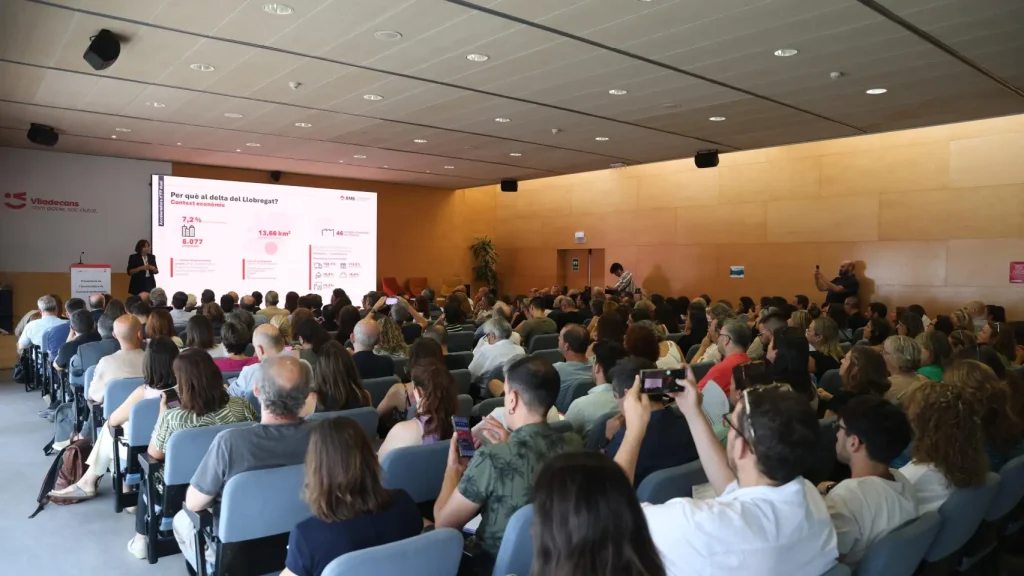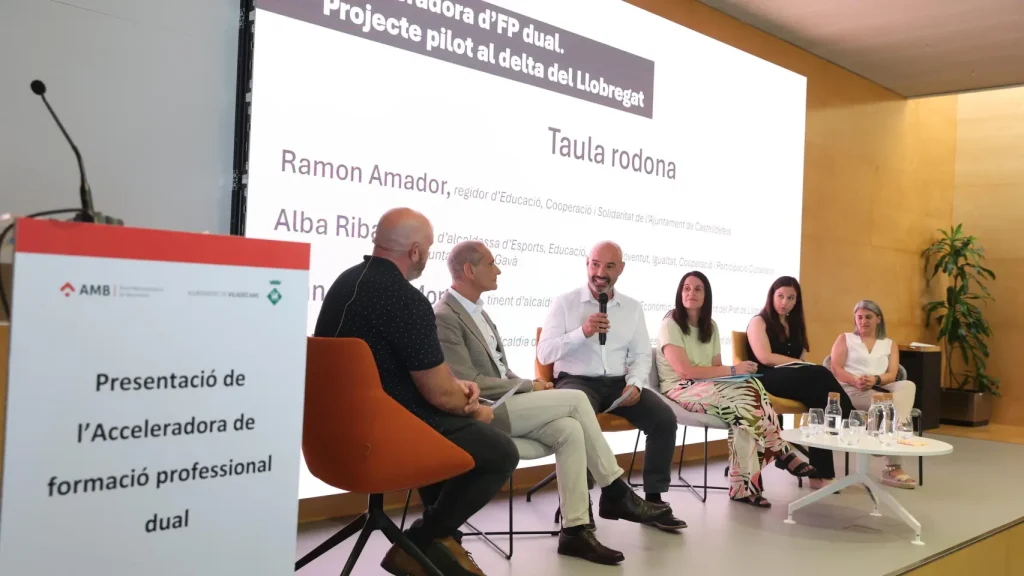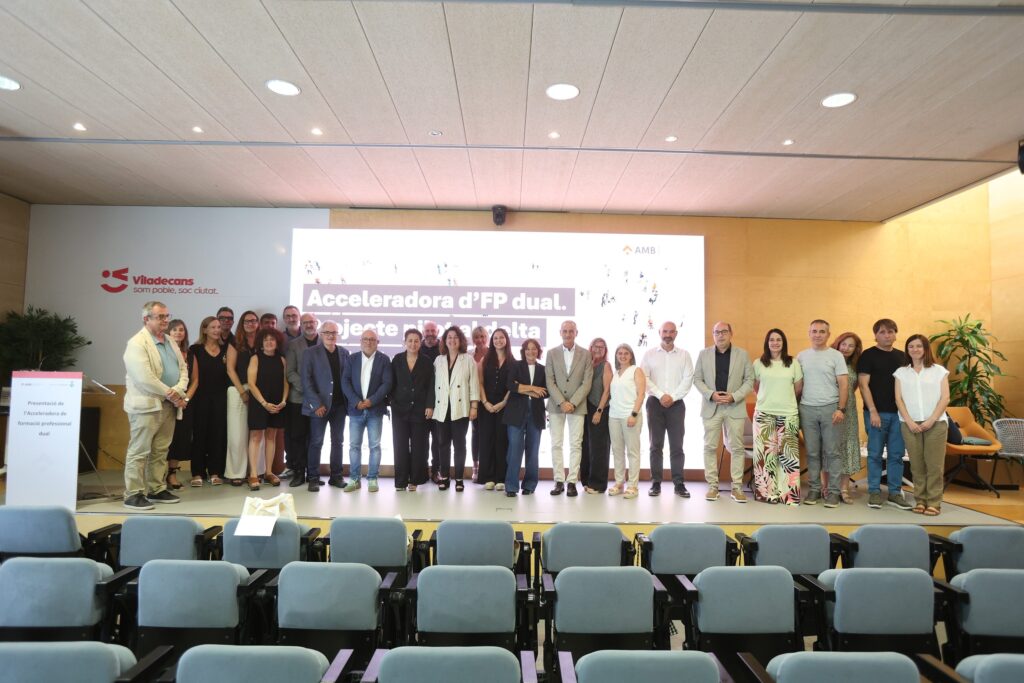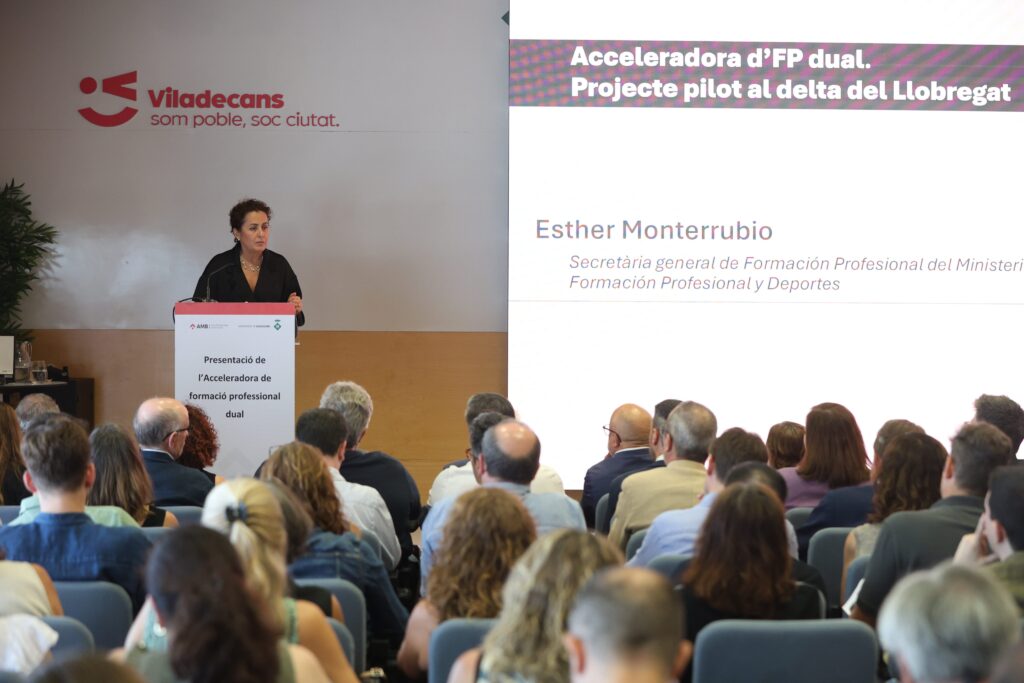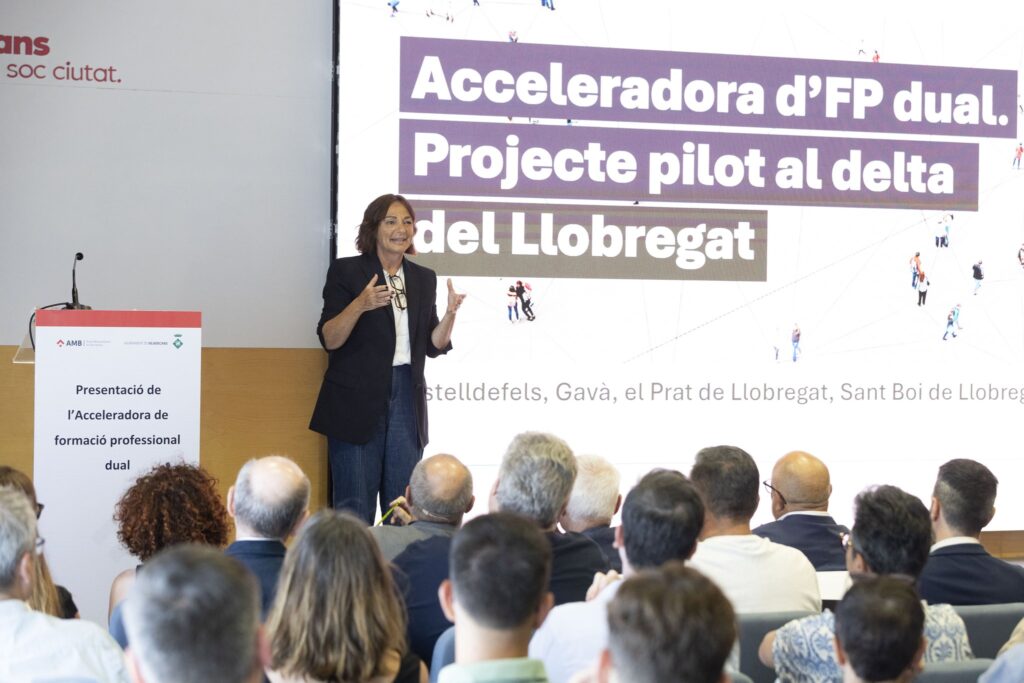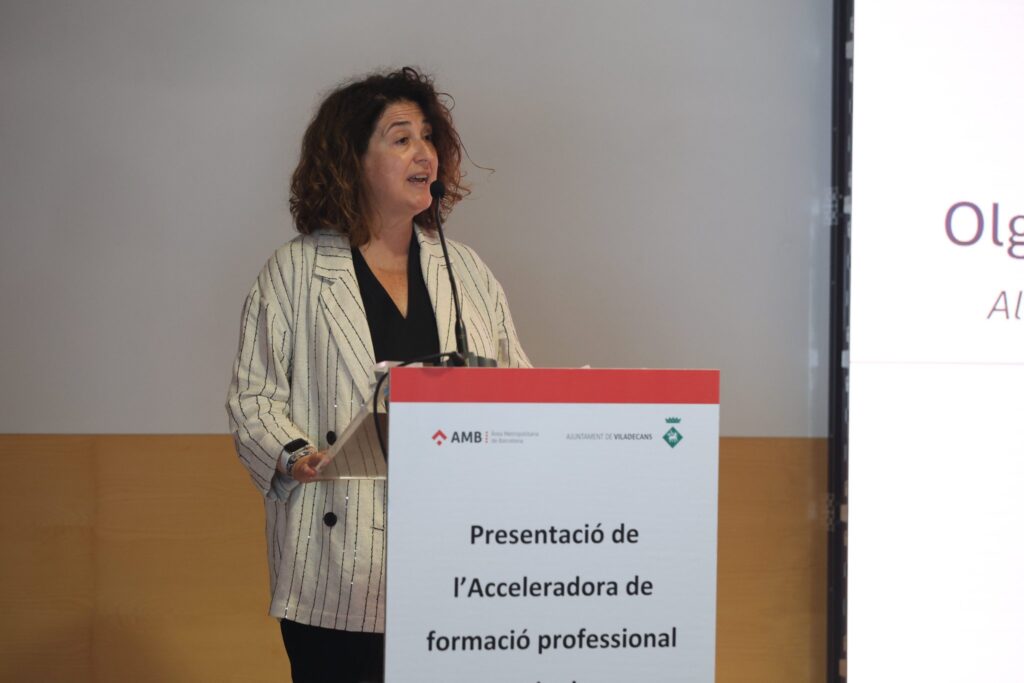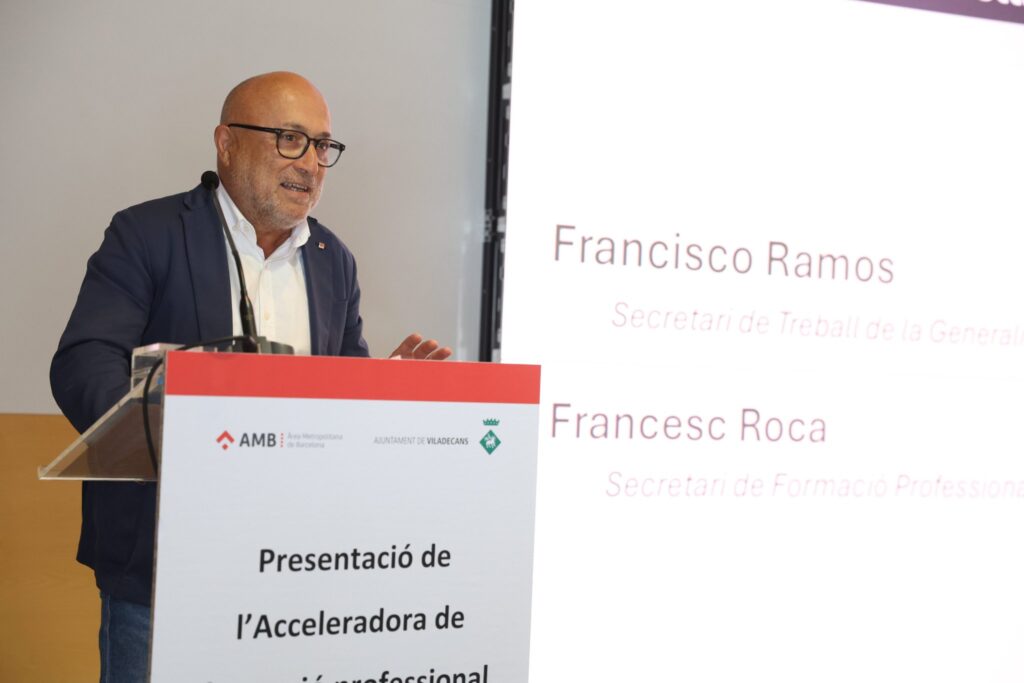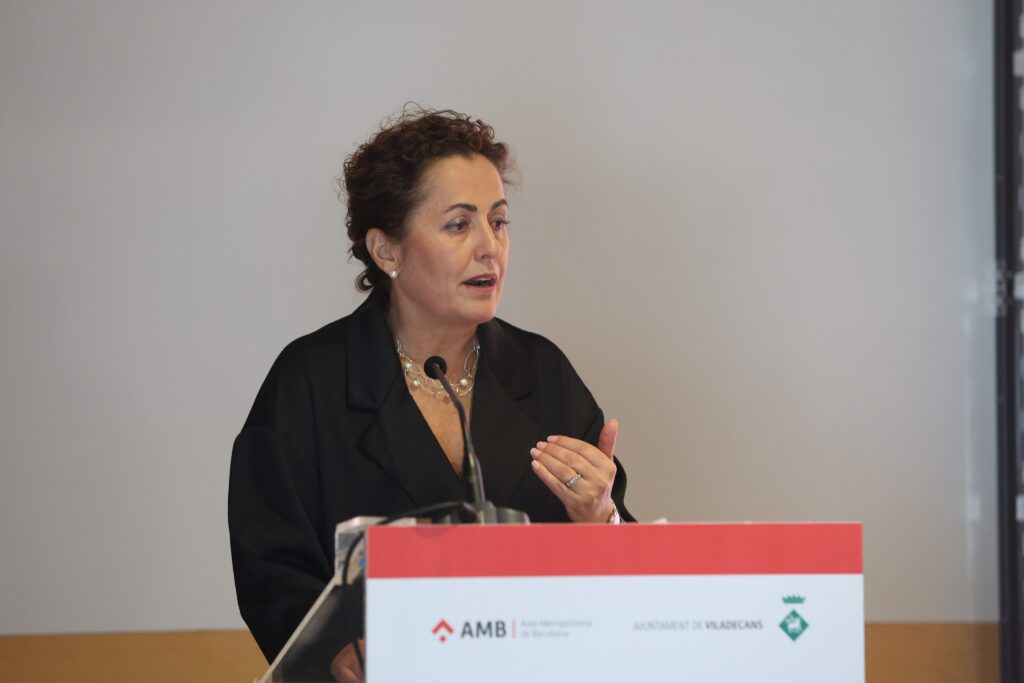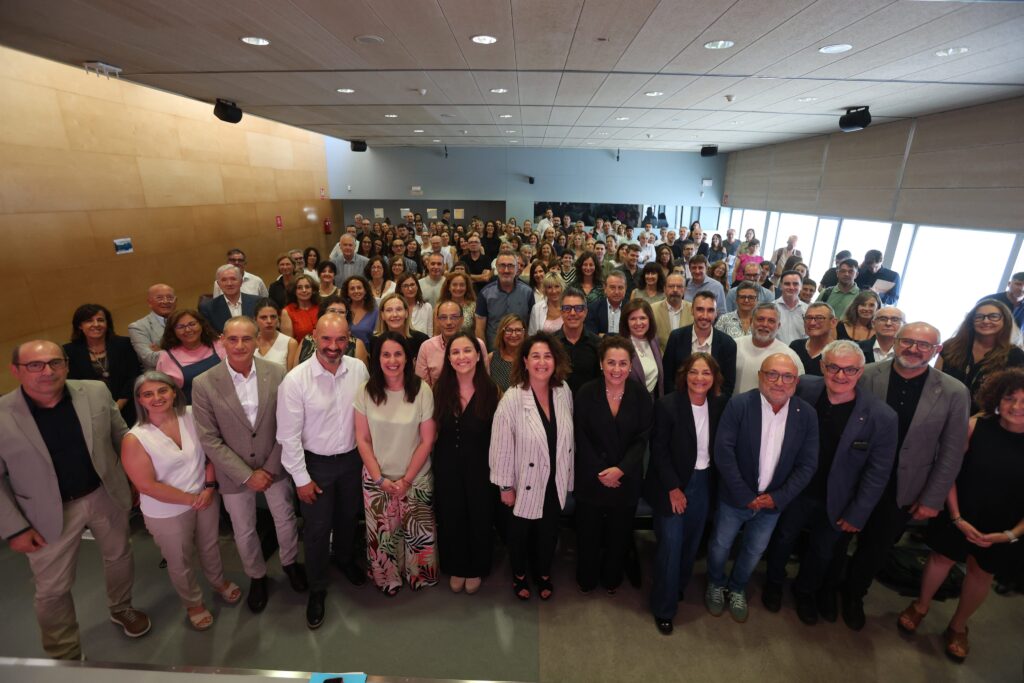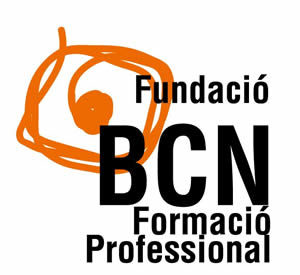The Barcelona Metropolitan Area (AMB) is promoting this pioneering initiative, which facilitates and centralizes online intermediation between companies and vocational training centers.
The municipalities of Castelldefels, Gavà, El Prat, Sant Boi, and Viladecans are joining this project to streamline the hiring and recruitment of young talent.
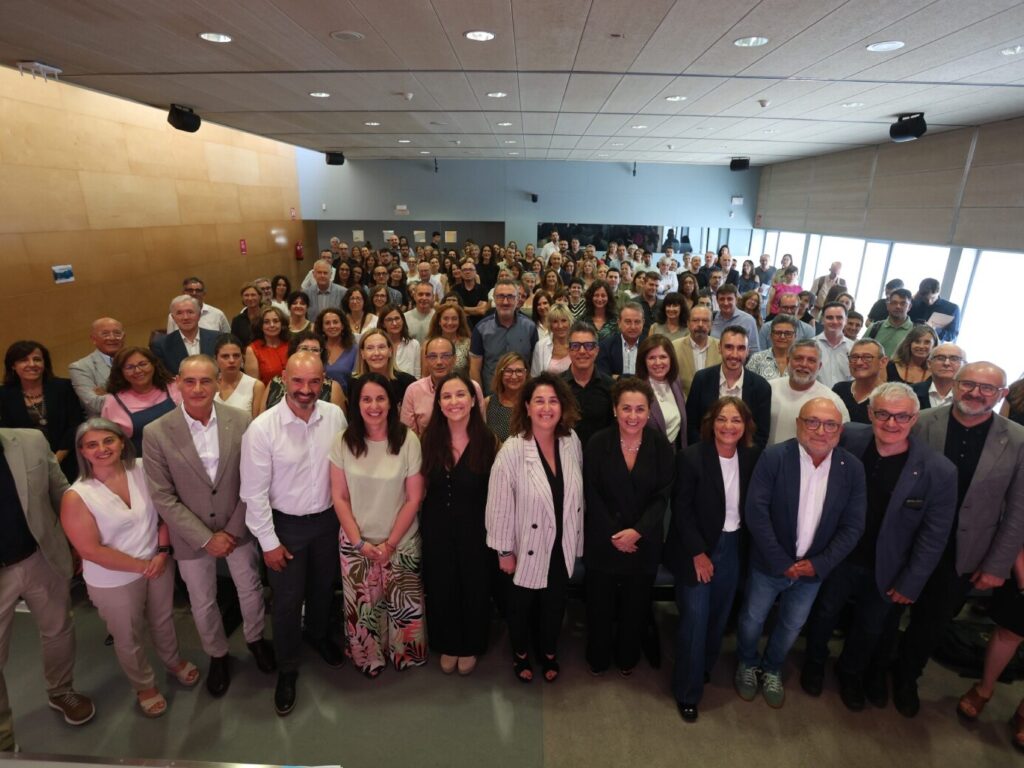
Starting this month, companies in the Llobregat Delta have a new, quick, and easy way to hire young people in dual vocational training. With just a few clicks, they can access a pool of apprentices from vocational training centers in the area and begin the process of hiring them.
The initiative, dubbed the dual vocational training accelerator, was presented on this Friday, the 4th, in Viladecans by the mayor of the town and CEO of Social Policies and Equality at the AMB, Olga Morales; the secretary of Vocational Training at the Department of Education and Vocational Training of the Generalitat of Catalonia, Francesc Roca; the Secretary General for Vocational Training of the Ministry of Education, Vocational Training, and Sports, Esther Monterrubio; and the coordinator of the Vocational Training Observatory of the BCN Vocational Training Foundation, Àngel Tarriño.
The dual vocational training accelerator is a pioneering pilot project (2025-2027) in Spain, developed in the Llobregat delta, promoted by the BCN Vocational Training Foundation and the Barcelona Metropolitan Area (AMB), and in agreement with the Department of Education and Vocational Training of the Government of Catalonia and the city councils of Castelldefels, Gavà, el Prat de Llobregat, Sant Boi de Llobregat, and Viladecans.
This tool functions as a hub connecting companies and training centers: it seeks to simplify and accelerate the process of intermediation between companies and vocational training centers, increase the number of companies participating as trainers in dual vocational training, support vocational training centers in managing student placements by generating more learning contexts, and improve the recruitment and retention of local talent, all of which brings direct benefits to companies, centers, and students.
During the presentation of this initiative, Olga Morales, CEO of Social Policies and Equality at the AMB and mayor of Viladecans, highlighted that “the process of finding a dual vocational training student can now begin with a quick and easy online application, which makes the vocational training system more agile.” She added: “The dual vocational training accelerator is a strategic commitment to better connect the world of education with the business world and guarantee real opportunities for young people, reducing the costs of finding apprentices for companies and the costs for centers to find internships for students.” As for her city, Viladecans, she noted that “we are making ourselves available to this project with every intention of contributing. Education and sustainable economic development are pillars of our city model.”
Esther Monterrubio, Secretary General for Vocational Training at the Ministry of Education, Vocational Training, and Sports, stated: “I am certain that this pilot project will mark a turning point for the municipalities of the Llobregat Delta, promoting the training of the talent needed for productive sectors to grow, consolidating generational renewal, increasing the employability of young people, and elevating the system as a whole”. Regarding the arrival of vocational training students in companies, she acknowledged: “We know that incorporating vocational training students into a company is nothing less than a source of wealth, talent, and resources. The new dual vocational training system is an ally of the company, and the smaller the company, the more of an ally vocational training will be”.
Finally, Monterrubio explained that the most successful vocational training systems incorporate collaboration between vocational training centers and companies, so that students do not only go once they have finished their training at the center, but throughout all the courses of their training. “We have to understand the company not only as the place where you arrive after a period of theory, but as a training space that is just as valid as the center itself, providing different training and perspectives”, he said.
The Secretary for Vocational Training at the Department of Education and Vocational Training, Francesc Roca, stated that “the dual vocational training accelerator presented today is a tool of high strategic value. Allow me to draw an analogy with the world of physics: in a particle accelerator, particles gain speed thanks to a prepared, controlled, and highly specialized environment. Here we do something similar with people in training: we create the conditions for their professional development to accelerate, connecting theory and practice, knowledge and experience, the classroom and the workplace.” Roca added that this accelerator therefore symbolizes “the desire to promote solid, relevant life and career paths that are adapted to the needs of the productive sectors, through a dual training model that places the student at the center of the process and the company as an active and co-responsible training agent”.
Àngel Tarriño, coordinator of the Vocational Training Observatory at the BCN Vocational Training Foundation, explained: “The accelerator is a clear commitment and an opportunity to make the operational leap that dual vocational training needs, and it removes some of the barriers we face. It is a pilot project with great potential, which can be scaled up in other areas and territories. It is based on direct cooperation between the local community, the Department of Education of the Generalitat of Catalonia, and the economic fabric, and we believe that this is the key to the success of this initiative, which provides innovative tools and working methodologies”.
A digital solution to the demand for talent
At a time of economic growth and sectoral transformation in the Llobregat delta—with notable increases in employment in sectors such as logistics (+24%), retail (+12%), and construction (+6%)—many companies are finding it difficult to recruit young, qualified candidates.
This context, coupled with the evolution of the new dual vocational training system and the increase in its administrative complexity, calls for a model such as the dual vocational training accelerator, which optimizes the flow of supply and demand for apprentice profiles and reduces the time and cost that companies spend on finding apprentices.
How does it work?
The system is completely digital and is open throughout the school year: first, the company accesses the accelerator’s website and views the Llobregat Delta vocational training qualifications portfolio, where it can consult all the qualifications available for taking on apprentices.
It then fills out an online form and indicates the professional profile it needs.
The application is then entered into a database shared between the five local councils and all the centers and companies in the area.
At this point, the accelerator activates the search and puts the company in contact with the centers that can provide apprentices, following a circuit structured by proximity zones (coronas 1, 2, and 3).
Finally, the educational centers propose suitable candidates for the application and the stay at the company is planned.
The accelerator also offers support services, such as guidance on which vocational training qualifications are best suited to each job profile, information on administrative procedures, and access to the various vocational training qualifications offered by training centers in Llobregat Delta, through an interactive guide to the existing training options. It also contains information on key aspects to help any company understand and implement dual vocational training.
The accelerator project can be scaled up and replicated in other areas of the metropolitan area if the results of the pilot test are positive.
A public-private partnership project
The AMB’s dual vocational training accelerator is a reality thanks to the involvement of all stakeholders:
- Local councils in the Llobregat Delta.
- Vocational training centers (22 centers with more than 8,000 students enrolled).
- Social partners: Foment, PIMEC, UGT, CCOO.
- Business associations: AEBALL, AEMES, the Chamber of Commerce, INNOBAIX, BCL.
- Local community.
All of this is done with the technical support of the Public Employment Service of Catalonia (SOC), the Directorate General for Vocational Training, and the Directorate of Regional Education and Vocational Training Services in Baix Llobregat.
A region with training and business potential
The Llobregat delta is an area with more than 8,000 companies, strategic infrastructure such as the port of Barcelona, the airport, and the ZAL, and an extensive network of 22 vocational training centers that train more than 8,000 students each year.
This combination of educational opportunities, business diversity, and a tradition of public-private cooperation makes the region an ideal setting for evaluating this type of innovative project.
